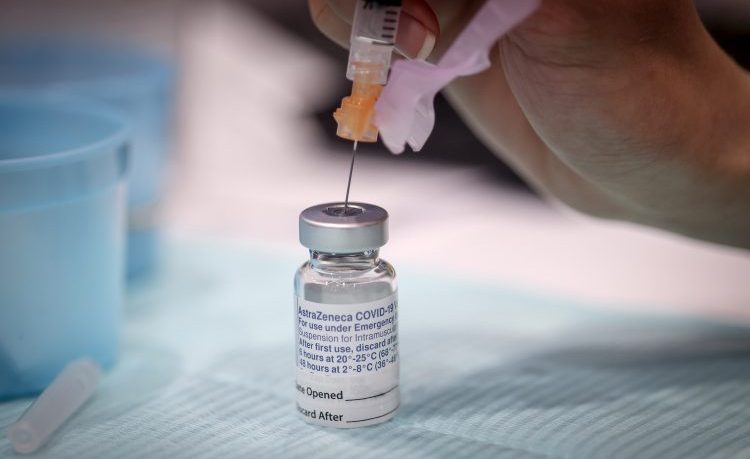Quebec health officials reported a third case of a rare blood clot linked to Oxford-AstraZeneca’s COVID-19 vaccine on Saturday.

The Health Department said the unidentified person remains hospitalized but is in stable condition.
Late last month, Francine Boyer, 54, died of a cerebral thrombosis in a Montreal hospital after receiving the AstraZeneca shot on April 9.
Thrombosis is a possible complication of the AstraZeneca vaccine, but is reported in about one per 100,000 vaccines administered. As of Friday, Quebec has administered more than 500,000 doses of AstraZeneca vaccine.
READ MORE: Blood clots from COVID-19 up to 10 times more likely than vaccines: researchers
Dr. Horacio Arruda, Quebec’s director of public health, said in a statement the risks related to COVID-19 illness far outweigh those linked to the vaccine.
There is a much higher risk — up to ten times more likely — of brain blood clots (cerebral venous sinus thrombosis) from COVID-19 infection than there is from vaccines against the disease, researchers say.
Health officials have highlighted that COVID-19 is associated with more common clotting disorders than cerebral thrombosis, such as strokes, and that recent debate around vaccines has lost sight of how bad the disease itself could be.
READ MORE: Blood clot risks — comparing COVID-19 vaccines with common medicines, travel and smoking
- Life in the forest: How Stanley Park’s longest resident survived a changing landscape
- Bird flu risk to humans an ‘enormous concern,’ WHO says. Here’s what to know
- More youth are seeking EI amid rising unemployment rates: StatCan
- Mental health support still lacking 4 years after mass shooting: Nova Scotia mayor
Blood clotting can also occur as a side effect to other common medications, such as birth control and hormone replacement therapy, during pregnancy, from long trips, after an injury or post-surgery and due to smoking.
The risks of clotting are higher in each of these cases than from the COVID-19 vaccines themselves, experts say, stressing that the benefits of vaccination outweigh the risks.
The province has said all adults in Quebec will be able to book a vaccination appointment by mid-May.
Health authorities will open appointments to those 45 and older beginning Monday.
Quebec has now reported 350,874 infections and 10,933 deaths since the beginning of the pandemic. The province has 9,579 active cases.
–with files from Alessia Maratta, Global News










Comments